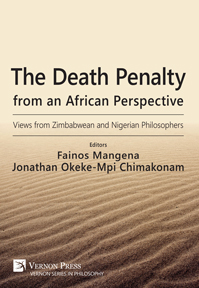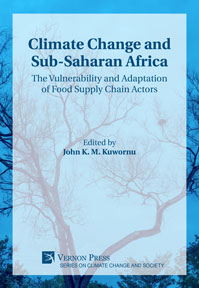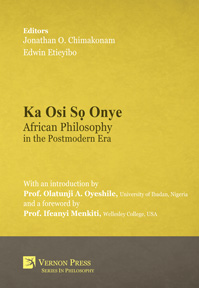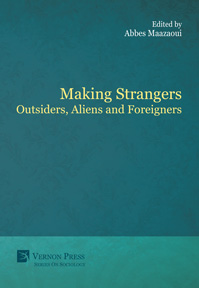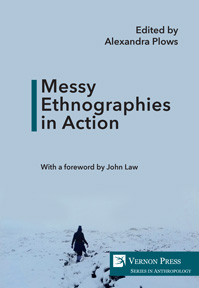New Perspectives on African Childhood
Constructions, Histories, Representations and Understandings
De-Valera NYM Botchway, Awo Sarpong, Charles Quist-Adade (Eds.)
by Charles Quist-Adade (Kwantlen Polytechnic University, Canada), De-Valera NYM Botchway (University of Cape Coast, Ghana), Tammy Hughes (Duquesne University, USA), Zethu Cakata (University of South Africa, South Africa), Awo Sarpong (University of Cape Coast, Ghana), Debbie Olson (Missouri Valley College, USA), Ivo Mhike (University of the Free State, South Africa), Komlan Agbedahin (University of the Free State, South Africa), Mawuloe Koffi Kodah (University of Cape Coast, Ghana), Mofeyisara Oluwatoyin Omobowale (University of Ibadan, Nigeria), Olukemi K. Amodu (University of Ibadan, Nigeria), Waganesh A. Zeleke (Duquesne University, USA), Richard Awubomu (University of Health and Allied Sciences, Ghana), Samuel Bewiadzi (University of Health and Allied Sciences, Ghana), Andrea Y. Adomako (Northwestern University, USA), Natalie Drozda (Duquesne University, USA)
Purchase this book
(click here to change currency)
This is a timely book which carries a number of pertinent themes such as child marriages, child trafficking, child abuse (in its broad sense), child soldiers, and the need to revisit the notion of African childhoods more broadly. It highlights the importance of taking the experiences of African children and their role in society seriously. The book provides insight on the need to go beyond seeing children as victims, helpless, deficient, and lacking; and provides the reader with narratives that put on the spotlight the multifaceted nature of what it means to be a child in Africa; narratives of hope, love, desire, choice, belonging, resistance, togetherness, and community. The book further highlights the need to unlearn the damage caused by colonial education and relearning what it means to be African through stories, proverbs, art, literature, etc. This book on African childhoods will be a valuable resource for Psychologists, Sociologists, Gender specialists, literary scholars, and policymakers.
Prof. Puleng Segalo
Head of Office of Graduate Studies and Research, College of Human Sciences
University of South Africa, ZA
What does it mean to be a child in Africa? In the detached Western media, narratives of penury, wickedness and death have dominated portrayals of African childhood. The hegemonic lens of the West has failed to take into account the intricacies of not only what it means to be an African child in local and culturally specific contexts, but also African childhood in general.
Challenging colonial discourses, this edited volume guides the reader through different comprehensions and perspectives of childhood in Africa. Using a blend of theory, empiricism and history, the contributors to this volume offer studies from a range of fields including African literature, Afro-centric psychology and sociology. Importantly, in its eclectic geographical coverage of Africa, this book unashamedly presents the good, the bad and the ugly of African childhood.
The resilience, creativity, pains and triumphs of African childhood are skilfully woven together to present the myriad of lived experiences and aspirations of children from across Africa. As an important contribution to African childhood studies, this book has the potential to be used by policymakers to shape, sustain or change socio-cultural, economic and education systems that accommodate African childhood dynamics and experiences at different levels.
List of Tables
Introduction
De-Valera N.Y.M. Botchway
Chapter 1 Omo boti and Omo pako: Social Construction of Childhood, Livelihood and Health in Southwestern Nigeria
Mofeyisara Oluwatoyin Omobowale and Olukemi K. Amodu
Chapter 2 Our Stones, Our Livelihood: Urban Working Children’s Survival Strategy and its Implications in the Daglama Quarry Site in the Ho Municipality of Ghana
Samuel Bewiadzi and Richard Awubomu
Chapter 3 Childhood in Africa: Health and Wellness in Body, Mind, Soul, and Spirit
Waganesh A. Zeleke, Tammy Hughes and Natalie Drozda
Chapter 4 Efua Sutherland and African Children’s Literature: Representations of Postcolonial Childhood
Andrea Y. Adomako
Chapter 5 On the Innocence of Beasts: African Child Soldiers in Cary Fukunaga’s Beasts of No Nation
Debbie Olson
Chapter 6 Boys and Girls in the Bush, Bosses in Post-Conflict Society: Liberian Young Veterans Rising to Power
Komlan Agbedahin
Chapter 7 White Poverty, State Paternalism and Educational Reforms in Southern Rhodesia in the 1930s
Ivo Mhike
Chapter 8 Childhoods Rooted in Land: Connecting Child Development to Land Using Cultural Practices of the IsiXhosa Speaking People of South Africa
Zethu Cakata
Chapter 9 “Adults are just obsolete children . . .”: Child Fancy Dress Parades as a Carnivalesque Suspension of Adultism in Winneba, Ghana
Awo Sarpong and De-Valera N.Y.M Botchway
Chapter 10 Mending the Broken Fences: A Study of the Socialized and De-socialized Child in Laye’s The African Child and Kourouma’s Allah Is Not Obliged
Mawuloe Koffi Kodah
Epilogue
Charles Quist-Adade
About the Editors and Contributors
Index
De-Valera N.Y.M. Botchway (PhD) is an Associate Professor of History at the University of Cape Coast (UCC), Ghana. His research and teaching interests are the history of Black Religious and Cultural Nationalism(s), African Indigenous Knowledge Systems, Children in Popular Culture, Regionalism and Integration in Africa, and Africans in Dispersion. He has authored books and several articles in different refereed journals and books. He co-authored ‘Freaks in Procession? Fancy Dress Masquerade as a Haven for Negotiating Eccentricity during Childhood. A Study of Child Masqueraders in Cape Coast’ in Misfit Children: An Enquiry into Childhood Belongings and co-edited the book Africa and the First World War: Remembrance,
Memories and Representations after 100 Years. He also edits three journals––Drumspeak, Asemka and Abibisem––at UCC, and belongs to the Historical Society of Ghana.
Awo Sarpong (PhD) is a lecturer in the Department of Basic Education at the University of Cape Coast (UCC), Ghana. She has authored several articles in different journals and books including ‘Freaks in Procession? Fancy Dress Masquerade as a Haven for Negotiating Eccentricity during Childhood. A Study of Child Masqueraders in Cape Coast’ in Misfit Children: An Enquiry into Childhood Belongings and ‘“Bo Me Truo”: A Female-Centred Sun Fire Nudity Dance Ritual of Fertility of the Sehwi People of Ghana’ in the journal Chronica Mundi. She draws on her rich experiences of Basic Education teaching and research to undertake this project on African childhood.
Charles Quist-Adade (PhD) is an experienced teacher and researcher in the Sociology Department at Kwantlen Polytechnic University, Canada. His research and teaching interests are Social Justice, Globalization, Racialization and Anti-racism, Social Theory, and Pan-Africanist and Global South issues. He has authored and co-authored several books such as In the Shadows of the Kremlin and the White House: Africa’s Media, An Introduction to Critical Sociology: From Modernity to Postmodernity (with Amir Mirfakhraie), Africa’s Many Divides and Africa’s Future, Re-engaging the African Diasporas (with Wendy Royal) and From the Local to the Global: Theories and Key Issues in Global Justice. He has won several teaching awards and accolades, including being cited twice in the Academic Edition of Canada’s premier news magazine Maclean’s as one of the top three most popular and one of 10 best professors at the University of Windsor. He draws on these rich experiences to undertake this project on African childhood.
Childhood Studies; African Childhoods; Postcolonial; Perspectives about African Childhood; Childhood Histories, Childhood Constructions, Childhood Representations; Childhood Understandings, De-Valera N.Y.M. Botchway Childhood; Childhood Studies in Africa, depictions of African children, African Childhood Studies; Black Children Studies, Youth African Youth Studies, Postcolonial African Childhood
Subjects
Sociology
History
Human Geography
Series
Series in Sociology
Related services
Find in a library near you Download HQ cover Find in Bookshop.org Find this title in AmazonSee also
Bibliographic Information
Book Title
New Perspectives on African Childhood
Book Subtitle
Constructions, Histories, Representations and Understandings
ISBN
978-1-62273-712-3
Edition
1st
Number of pages
278
Physical size
236mm x 160mm

![New Perspectives on African Childhood [Paperback]](/file/8473/ce14269ad4c754a1d41a13ef8076fd1d/1554452583.jpg)


